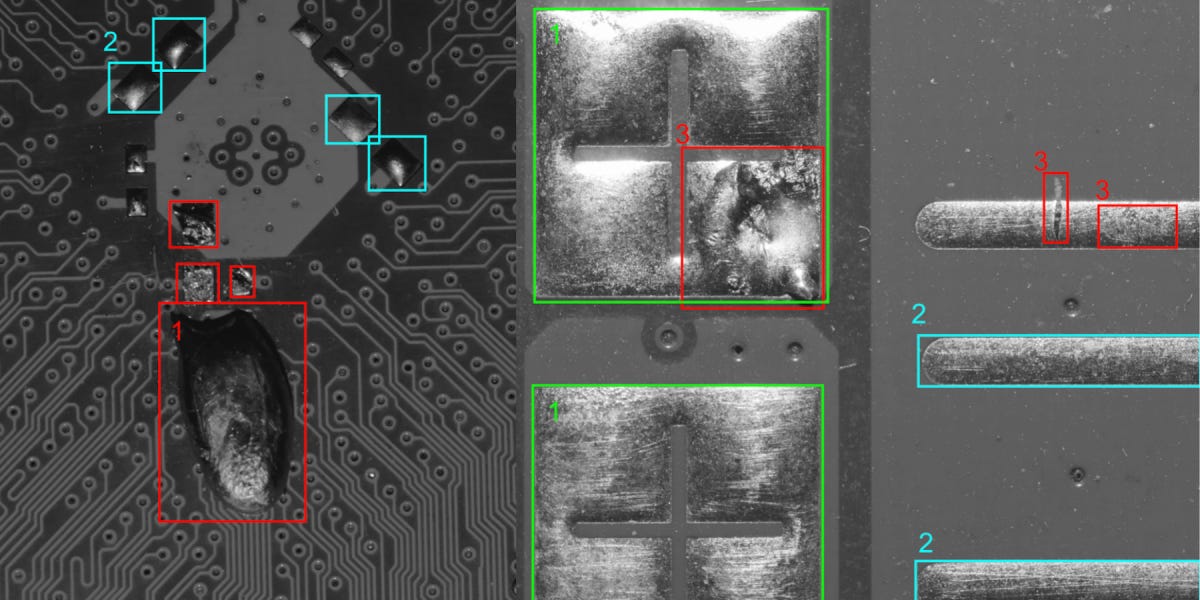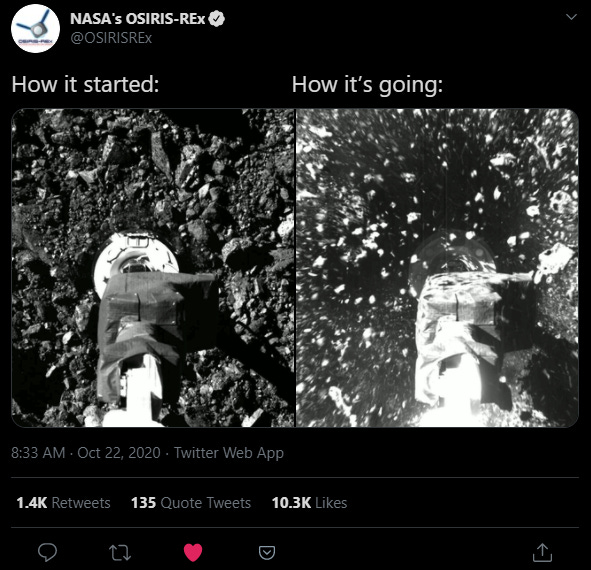Here’s your wrap of the latest technology, innovation, and finance news.
? Alternative Foods
How far are cell-based meats from commercialisation? Verdict talked with Memphis Meats about where they are on commercialisation journey.
“We need to find clever process solutions and cell feed formulations to ensure that we’re translating our raw materials into meat in the most cost-effective ways.”
For the vegans who don’t like soy milk, Impossible Foods is developing a plant-based alternative to cow’s milk.
As with Impossible Foods’ meat products, the goal of the milk alternative is to preserve the experience of consuming dairy products, including the texture, mouth feel, and flavour, while reducing the demand for raising animals like cattle.
? Gaming
Alexandria Ocasio-Cortez played Among Us on Twitch and 430,000 people tuned in, making her the third most popular streamer on the site ever.
More important, the event offered a glimpse at the future of political campaigning. In the waning weeks of 2020’s volatile American election campaign, Democrats are increasingly turning to Twitch streams of popular video games to reach out to young voters and urge every last one of them to show up and vote.
Video games are helping veterans with PTSD.
Amazon’s cloud-gaming service, Luna, is now available to select gamers in the United States.
Cyberpunk 2077 is using procedurally-generated facial animations to provide full lip-sync for every character in all 10 dubbed languages. See Judy speak English, French, German, and Japanese at the 17:05 point.
? Artificial Intelligence
Facebook has developed a new AI that’s capable of directly translating between any pair of 100 languages without first translating to English, as many systems do, and it’s performing pretty well.
The AI outperforms such systems by 10 points on a 100-point scale used by academics to automatically evaluate the quality of machine translations. Translations produced by the model were also assessed by humans, who scored it as around 90 per cent accurate.
A new paper outlines “less than one”-shot learning, a new technique designed to let AI learn with practically no data.
This is what most interests Tongzhou Wang, an MIT PhD student who led the earlier research on data distillation. “The paper builds upon a really novel and important goal: learning powerful models from small data sets,” he says of Sucholutsky’s contribution.
Landing AI is a company founded by Andrew Ng, one of the cofounders of Google Brain and the former chief scientist at Baidu. They’ve recently launched LandingLens, a computer vision platform that enables manufacturers to train AI models.
“I feel like this is where the field of AI needs to go. Rather than highly skilled engineers at Landing AI or Google or wherever doing all the machine learning work to build verticalized platforms, someone in a platform [who] really understands what is a dent versus what is a sensible-minded blemish can do the customization. I think this is important for machine learning to reach its full potential,” Ng said.
? Biology
For the first time, scientists have improved the resolution of cryo-electron microscopes to the point where they can see individual atoms (see paper 1, paper 2).
Now, with the help of improvements in electron beam technology, detectors, and software, two groups of researchers—from the United Kingdom and Germany—have narrowed that to 1.25 angstroms or better, sharp enough to work out the position of individual atoms, they report today in Nature.
?️ Space
Microsoft is taking Azure cloud computing to outer space.
The goal is to serve as a bridge between satellites and new services from both the public and private sectors, spanning military, telecommunications, agriculture, energy, and more.
NASA has awarded Nokia a $14.1 million contract to build a 4G network on the moon.
Blue Origin has found a business niche with NASA and private science experiments.
Tucked under the collar at the top of the booster on Tuesday’s launch were prototypes of sensors that could help NASA astronauts safely reach the lunar surface in a few years. It is part of NASA’s Tipping Point program, which seeks to push innovative technologies.
Head of NASA’s Pluto mission, Alan Stern, is going to space with Virgin Galactic.
Stern will oversee two different experiments while on board the flight, each meant to take advantage of the brief stay in the space environment.
OSIRIS-REx, a NASA spacecraft, has sampled material from the asteroid Bennu.
?️ Surveillance
Activists around the world are building facial recognition tools to identify police officers that aren’t wearing identification.
“I am involved with developing facial recognition to in fact use on Portland police officers, since they are not identifying themselves to the public,” Mr. Howell said. Over the summer, with the city seized by demonstrations against police violence, leaders of the department had told uniformed officers that they could tape over their name. Mr. Howell wanted to know: Would his use of facial recognition technology become illegal?
⚙️ Mobility
Boom Supersonic unveiled XB-1, a subscale prototype of their planned supersonic passenger jet.
Dubbed XB-1, the 71-foot-long, single-seat test vehicle was built to validate the design and technology of the company’s planned eventual final product, a $200 million airliner called Overture that will be three times XB-1’s size and carry 55 passengers to Mach 2.2.
? Health
Can gene therapy be used to treat some forms of autism?
Gene therapies are now moving into the autism space, and the Angelman trial is a sign of things to come. “A success in this space will completely change the way that we think about genetic testing in autism,” says Timothy Yu, a neurologist and geneticist at Boston Children’s Hospital in Massachusetts. “It will hold out the idea that if you can name the disease, you can actually do something to improve the quality of life for that child.”
Researchers are using lab-grown tissue grafts for personalised joint replacements.
A team at the University of Leeds have developed a robotic arm to perform colonoscopies.
The researchers successfully tested this method in an artificial colon as well as in two pigs. They believe the magnetically controlled procedure may be less painful than conventional colonoscopies and could be used on patients without sedation.
?️ Ecommerce
Alibaba is spending $3.6 billion to double its stake in Sun Art Retail Group, China’s largest big-box retailer with more than 480 large supermarket-department stores.
Gavin Baker argues that leading brick-and-mortar retailers are likely to be the biggest long-term Covid beneficiaries.
? Finance
China is experiencing a boom in share sales.
So far this year, exchanges in Shanghai and Shenzhen have hosted more than $47.5 billion of IPOs and listings for firms that have shares already trading elsewhere, Refinitiv data shows.
That is already the highest annual tally compared with any full year since 2010 and an unprecedented 27% of the global total, the data shows. If deals in Hong Kong by Chinese companies are added, the proportion rises to 43%.
⚡ Other Snippets
MIT Technology Review looked at Singapore’s huge bet on vertical farming.
Since then, food security has raced up the agenda. Now the government’s stated policy is that it wants to produce enough food to supply 30% of its own nutritional needs by 2030, up from just 10% now. To get there, it says, Singapore will need to grow 50% of all fruits and vegetables consumed domestically, 25% of all proteins, and 25% of all staples, such as brown rice. The commitment effectively aims to triple production by volume in the next 10 years. And since the country is short of land, it has pinned its hopes on technology.
Zoom has begun rolling out end-to-end encryption.
All Zoom users – free or paid – can now host a meeting with up to 200 participants with end-to-end encryption on the platform, meaning the company cannot access any of the data it is hosting.
The New York Times discussed the problem of free speech in an age of disinformation, and how democracies in Europe and Canada balance free speech with other democratic values.
A Japanese politician is battling to vanquish the ink stamp, the printer, and the fax machine.
“Why do we need to print out paper?” Mr. Kono asked rhetorically at a news conference soon after taking charge of the issue in September. “In many cases, it is simply because the hanko is required. So if we can put a stop to that culture, then it will naturally eliminate the need for printouts and faxes.”
Fast Company outlined 25 moments in tech that defined the past 25 years.







